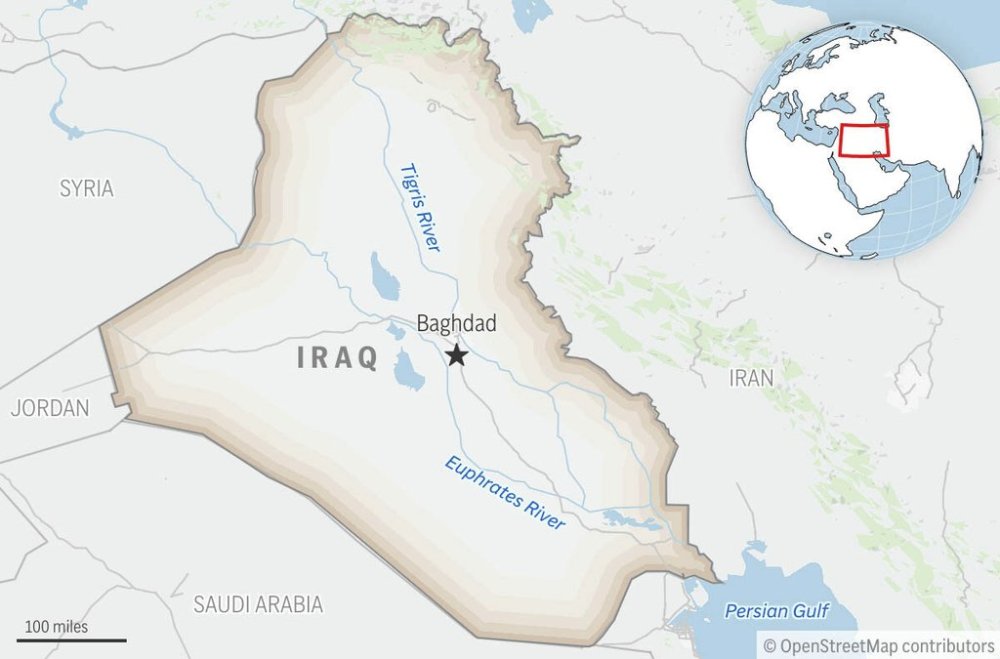Iraq’s amnesty law frees 35,000 and recovers $34.4M, Supreme Judicial Council says
Advertisement
Read this article for free:
or
Already have an account? Log in here »
To continue reading, please subscribe:
Monthly Digital Subscription
$1 per week for 24 weeks*
- Enjoy unlimited reading on winnipegfreepress.com
- Read the E-Edition, our digital replica newspaper
- Access News Break, our award-winning app
- Play interactive puzzles
*Billed as $4.00 plus GST every four weeks. After 24 weeks, price increases to the regular rate of $19.00 plus GST every four weeks. Offer available to new and qualified returning subscribers only. Cancel any time.
Monthly Digital Subscription
$4.75/week*
- Enjoy unlimited reading on winnipegfreepress.com
- Read the E-Edition, our digital replica newspaper
- Access News Break, our award-winning app
- Play interactive puzzles
*Billed as $19 plus GST every four weeks. Cancel any time.
To continue reading, please subscribe:
Add Free Press access to your Brandon Sun subscription for only an additional
$1 for the first 4 weeks*
*Your next subscription payment will increase by $1.00 and you will be charged $16.99 plus GST for four weeks. After four weeks, your payment will increase to $23.99 plus GST every four weeks.
Read unlimited articles for free today:
or
Already have an account? Log in here »
BAGHDAD (AP) — Iraq has released more than 35,000 people from prisons and detention centers under a wide-reaching amnesty law passed earlier this year, the country’s Supreme Judicial Council said Monday.
Another nearly 144,000 people, including defendants detained pre-trial and those who are out on bail or facing arrest warrants, are eligible for release or to avoid imprisonment under the law, the council said.
It added that courts had recovered more than $34.4 million in restitution from people convicted of theft and corruption charges.

The law passed in January has been touted as a means to relieve prison overcrowding. The country’s justice minister said in May that the country’s 31 prisons were holding about 65,000 inmates despite being built to hold only about half that number.
The amnesty covers crimes like corruption, theft and drug use, but also covers some people convicted of terrorism-related offenses, although those convicted of a killing in connection with terrorism-related charges is not eligible.
Passage of the law was spearheaded by Sunni lawmakers who argue that their community has been targeted by terrorism charges, with confessions sometimes extracted under torture. But it drew criticism from others who feared that it would allow people connected to the extremist Islamic State group to go free.
The judicial council did not provide a breakdown of the charges faced by those released under the amnesty.
Among provisions of the new law is that some people convicted of terrorism charges can ask for a retrial if they assert that their confessions were taken under duress while in detention. The law also halted executions.
Iraq has faced criticism from human rights groups over its application of the death penalty and particularly over mass executions carried out without prior notice to lawyers or family members of the prisoners.

